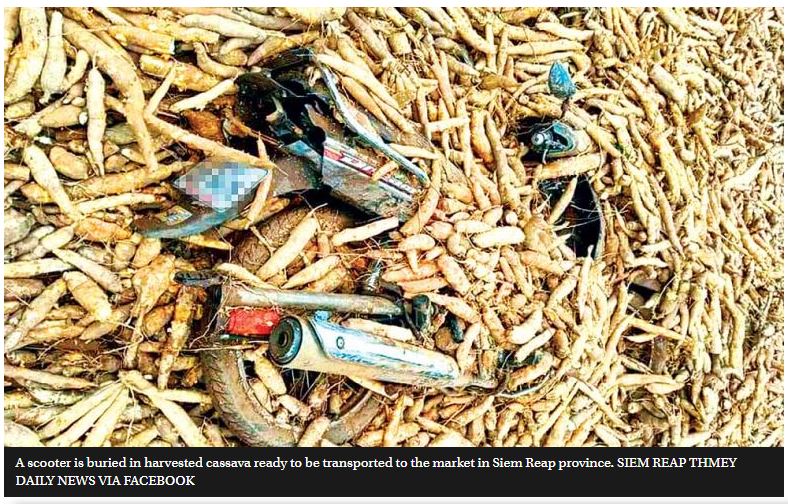Cambodia: Outlook good for the Kingdom’s agro sector
Buoyed by year on year growth, the Kingdom’s agriculture sector remained positive about its growth potential this year, despite the looming threat of EU safeguard measures hanging over the country’s rice industry.
The Ministry of Agriculture, Forestry and Fisheries expressed optimism that this year would be another good year for the sector, with ministry spokesman Srey Vuthy saying many agro-processing factories are expected to commence operation this year.
“We have a fresh fruit processing factory, a cassava processing factory and a rice storage and dryer ready for full operation this year. All of these will ensure the market and add value to our products,” he said.
New facilities
The first fresh fruit processing plant in Kampong Speu province, a South Korean-owned factory valued at $10 million, is expected to open this year and process more than 50,000 tonnes of fruit annually, including coconut, durian and mangosteen.
Hong Kong-based Green Leader Holdings Group Co Ltd, which announced its first cassava processing factory last year, plans to invest a total of $150 million in the cassava industry. Its Kratie province factory is expected to commence operations in February.
Vuthy said the facilities will bring more Cambodian agro-products to the international market.
“Our bananas are ready for export this year. The Ministry of Agriculture, Forestry and Fisheries will seek more investors looking for potential investments,” he said.
Vuthy added that the ministry expects rice exports to increase this year.
“We are proud of our rice industry – we now have standard and high capacity rice storage and drying [facilities], and we will boost our rice exports to China this year,” he said.
The sector launched a number of rice facilities in Kampong Thom, Kampong Cham, Prey Veng, Takeo and Battambang provinces last year. However, the sector still encounters logistics and infrastructure challenges that need to be solved, Vuthy said.
“We need time to improve our logistics and infrastructure as well as electricity costs, in order to reduce the cost of production and compete with the international market,” he said.
Cambodia Rice Federation vice-president Hun Lak echoed Vuthy’s concerns, saying Cambodia’s “production costs are still high” compared to its neighbours, making it “hard to boost rice exports”.
He added that the fruit industry has high potential for exports, but challenges remain for products such as cassava, mangoes, pepper, corn, cashews, longan and bananas.
Lak said prohibitive international sanitary standards are one of the main issues, with the government needing to build strong market relations and trade agreements to resolve this.
“If we can solve these issues, I believe our fruits will be able to reach the international market in huge quantities and help promote our economy,” he said.
Amru Rice Co Ltd CEO Song Saran said more investment in processing plants is needed to maintain sector growth and reduce reliance on imports.
“When we can process our raw materials, we can add more value to our products. So in 2019, rice, cassava and cashew products will be good.”
“Some of our raw materials cannot be processed into finished products. It is hard to compete with the market while we still rely on unofficial imports. It is a risk for our sector,” he said.
Saran added that the EU’s safeguard measures will be a sensitive issue for the Kingdom’s rice industry this year.
“The safeguard measures remain a concern for the rice industry. However, I still believe that the EU will compromise on certain conditions, especially for our fragrant rice,” he said.
Source: https://www.phnompenhpost.com/business/outlook-good-kingdoms-agro-sector


 Thailand
Thailand




